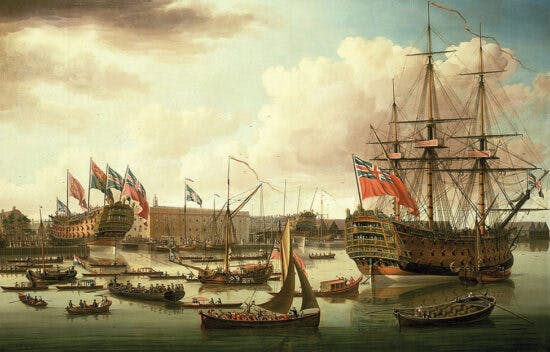



Mrs. P's American Revolution Mixed Tape
Updated June 27, 2025
20 items
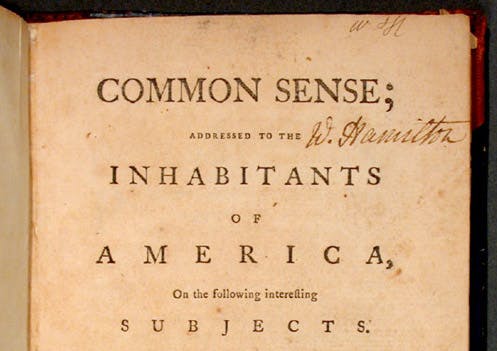
Thomas Paine, Common Sense, 1776
Activity
Activity
40 Min
Use this primary source text to explore key historical events.

Alexander Hamilton: Washington’s Right-Hand Man & Stable Policymaker w/ Stephen Knott
Video
Video
25 Min
What unique contributions did the various Founders make to liberty and constitutional self-governance? BRI’s new “American Founders” Scholar Talk Series seeks to answer this and other questions. In this episode, Stephen Knott recently retired Professor of National Security at the Naval War College and author of several books on Alexander Hamilton joins BRI Senior Fellow Tony Williams. The two discuss Hamilton’s upbringing, embracement of American principles, arguments for a stronger union, and more. How did Hamilton demonstrate the importance of self-governance through his actions and arguments?
25 Min
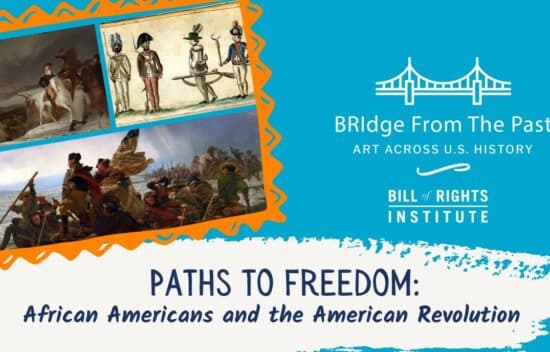
Paths to Freedom: African Americans and the American Revolution | BRIdge from the Past
Video
Video
9 Min
Images can help tell the story of major events throughout U.S. History, but sometimes, you must look closely to uncover the hidden stories from the past. In this episode of BRIdge From The Past, Mary explores famous paintings depicting the role of African Americans during the American Revolution. How are African Americans depicted in paintings from this period? What clues are we still missing from their role in the Revolutionary War?
9 Min

Paths to Freedom: African Americans and the Revolutionary War
Lesson - 11 Activities
Lesson
11 Activities
90 Min
How did African Americans participate in the Revolutionary War? How did their actions reflect a desire to enjoy their natural rights?
90 Min

Was the Revolutionary War America’s First Civil War?
Podcast
Podcast
As an American in the 21st century, it’s incredibly easy to look back on the Revolutionary War and joke about the "redcoats," but would you really have been a patriot if you lived at that time? In a special episode of Fabric of History, Mary is joined by Dr. Rebecca Brannon, Associate Professor of History and Interdisciplinary Liberal Studies at James Madison University in Harrisonburg, Virginia, and author of "From Revolution to Reunion: The Reintegration of the South Carolina Loyalists," to take a closer look at the reasons why people chose to side as patriots or loyalists, or why they may have decided to walk the challenging tightrope of neutrality. What are some examples of regular citizens navigating this difficult time, and what happened to them after the Revolution? What unique challenges did the Revolution pose for minorities and women?

Thomas Paine, Common Sense, 1776
Activity
Activity
40 Min
Use this primary source text to explore key historical events.

George Washington and Prudence
Lesson - 4 Activities
Lesson
4 Activities
120 Min
How did George Washington display the virtue of prudence through his life? Explore the influence of his prudence on the early republic and discuss what examples of prudence can be observed today.
120 Min

Loyalist vs. Patriot
Essay - 2696 Words
Essay
2696 Words
By the end of this section, you will explain how British colonial policies regarding North America led to the Revolutionary War and explain how various factors contributed to the American victory in the Revolution.

James Armistead and Courage
Lesson - 3 Activities
Lesson
3 Activities
90 Min
How and when should an individual act courageously? Explore the story of James Armistead Lafayette.
90 Min

Was the Revolutionary War America’s First Civil War?
Podcast
Podcast
As an American in the 21st century, it’s incredibly easy to look back on the Revolutionary War and joke about the "redcoats," but would you really have been a patriot if you lived at that time? In a special episode of Fabric of History, Mary is joined by Dr. Rebecca Brannon, Associate Professor of History and Interdisciplinary Liberal Studies at James Madison University in Harrisonburg, Virginia, and author of "From Revolution to Reunion: The Reintegration of the South Carolina Loyalists," to take a closer look at the reasons why people chose to side as patriots or loyalists, or why they may have decided to walk the challenging tightrope of neutrality. What are some examples of regular citizens navigating this difficult time, and what happened to them after the Revolution? What unique challenges did the Revolution pose for minorities and women?
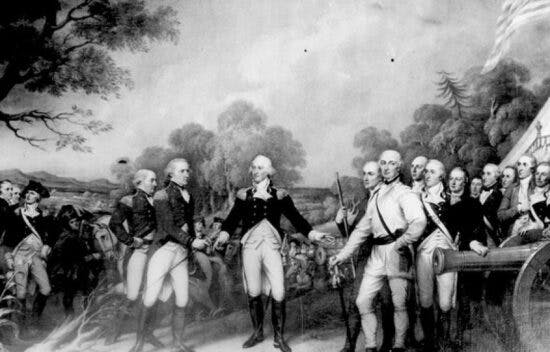
The Global Impact of the American Revolution DBQ
Lesson - 1 Activities
Lesson
1 Activities
90 Min
This Lesson can be used at the beginning of Chapter 4 to reinforce and review the key events of the American Revolution covered in Chapter 3. This activity will also introduce students to the effects the Revolution had on the world stage in the late eighteenth and early nineteenth centuries.
90 Min
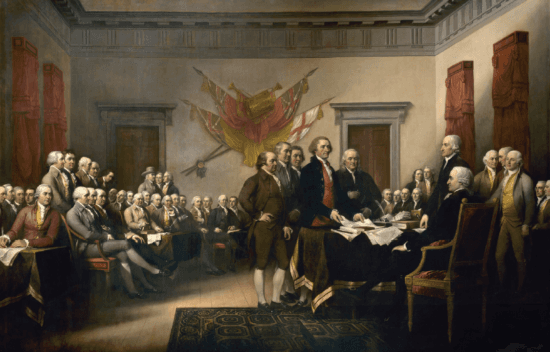
The Declaration of Independence
Lesson - 4 Activities
Lesson
4 Activities
What were the philosophical bases and practical purposes of the Declaration of Independence?
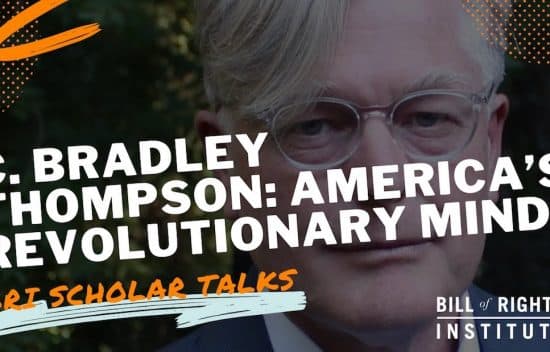
America’s Revolutionary Mind with C. Bradley Thompson | BRI Scholar Talks
Video
Video
29 Min
We all know the Declaration of Independence, but do we know the philosophical and moral underpinnings behind the famous document? In this Scholar Talk video, BRI Senior Teaching Fellow, Tony Williams and C. Bradley Thompson, Professor of Political Science at Clemson University, discuss Thompson's book "America's Revolutionary Mind: A Moral History of the American Revolution and the Declaration That Defined It." How did the moral ideas of natural rights and self-government borrowed from Enlightenment thinkers like John Locke help shape the founding of the nation? In what way was the Revolution, as Adams called it, a “Revolution [that] was in the Minds and Hearts of the People?”
29 Min

George Washington: Leadership Through Eagerness to Relinquish Power w/ Jeffry Morrison
Video
Video
30 Min
What unique contributions did the various Founders make to liberty and constitutional self-governance? BRI’s new “American Founders” Scholar Talk Series seeks to answer this and other questions. In this episode, Jeffry Morrison, Professor of American Studies at Christopher Newport University and Director of Academics at the James Madison Foundation, joins BRI Senior Fellow Tony Williams. The two talk about the virtues embodied by Washington, the role of his traditions on his political principles, and his support of the creation of a constitutional republic. How did George Washington’s values and contributions set a precedent of self-governance for all presidents to follow?
30 Min

